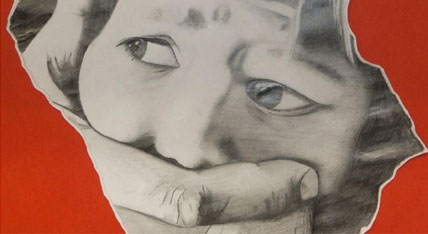
How Iris was Captured
Radio interview with a woman who was trafficked for sexual exploitation.
read more
Congratulations to our RENATE Europe Network colleagues on the successful launch of their latest law research, which took place 4 July 2024.
RENATE Co-President Marie Power, HFB, warmly welcomed all in-person and online, who joined RENATE members and staff at the Bakhita Centre for Research on Slavery, Exploitation and Abuse, at St. Mary’s University, Twickenham, as RENATE launched its research on ‘’Legal Practitioners’ work with Victims of Human Trafficking:- Training required to undertake this work and resources to aid them in five countries: Albania, Bulgaria, Romania, Spain and Great Britain, ’’ on 4 July 2024.
The research is a culmination of two year’s collaborative work involving RENATE members in the five countries spotlighted in the report who fed in source information and data to Dr. Carole Murphy, Director and Dr. Ruth van Dyke,Acting Director, of the Bakhita Centre for Research on Slavery, Exploitation and Abuse, at St. Mary’s University, and Honorary Research Fellow, and Dr. Anta Brachou, Post-Doctoral Researcher, which culminated in the publication of a seminal research document.
Amongst those present in person were David Ryall, Director, Santa Marta Group, who represented Cardinal Vincent Nicholls, President and Chairperson of the Santa Marta Group and Imelda Poole, IBVM, former President of the RENATE Europe Network.
The context for the research emanates from the RENATE Europe Network’s Mission Statement, which states the need to challenge the judicial and civil authorities to adopt and enforce legislation that protects victims, provides them with adequate compensation, punishes clients and buyers and seizes the assets of perpetrators. And it is this specific part of RENATE’s mission which inspired RENATE to commission the Bakhita Centre to undertake the research.
Rich in data and direct quotations from its contributors, the research findings are numerous, not least being the fact that those who are charged with legally supporting victims of human trafficking or modern slavery, very often, do so with limited support themselves. Brian O’ Toole who led the Law Task group stated ‘’The legal practitioners work in challenging conditions, where the work is slow, the caseload is high, training is largely absent and all for very little pay. In many cases lawyers quietly support victims long after their work obliges them to, such is the need and vulnerability that they have identified that they feel that to cease support would be tantamount to abandonment, even though there is no pay for this extra but necessary support. The work is neither attractive nor lucrative, but this report alerts us to, not only, the importance of those who take on this work but also the need for more to shoulder what is indeed a heavy burden.’’
Another finding is the commitment, hard work, unstinting support – above and beyond what is expected, well beyond what the lawyers are being paid to do. The report is peppered with real quotes that give a real sense of the difficulties experienced by legal practitioners who speak to their real experiences. Frequently repeated by the lawyers in the research is the plea for a joined-up system that trains, resources, advocates and supports, always in the context of a ‘victim-centred’ perspective, as articulated by one lawyer ‘’“It is not just survivors who are negatively impacted by limited legal aid capacity, it is also those practitioners who advise survivors. They have to manage heavy workloads and the pressure of being a key person in survivor’s recovery journey. They also have to make decisions about who they can help. All of these generate stress.”